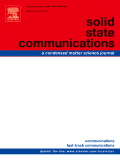
SOLID STATE COMMUNICATIONS
metrics 2024
Exploring the Frontiers of Solid-State Science
Introduction
SOLID STATE COMMUNICATIONS is a prestigious journal published by Pergamon-Elsevier Science Ltd, dedicated to disseminating cutting-edge research in the fields of Chemistry, Condensed Matter Physics, and Materials Chemistry. With an ISSN of 0038-1098 and an E-ISSN of 1879-2766, the journal has established itself as a vital resource for researchers and professionals seeking to explore the fundamental properties and innovative applications of solid-state materials. As of 2023, it boasts a commendable standing, ranking in the Q2 quartile across its various categories, reflecting its impactful contributions to the scientific community. The journal is indexed in Scopus, further validating its relevance and quality, with notable ranks close to the median percentile in key areas. While SOLID STATE COMMUNICATIONS does not currently offer Open Access options, it remains a highly regarded source for rigorous scientific inquiry and open discussions, with a publication history dating back to 1963 and continuing to 2024. The journal serves as an essential platform for disseminating groundbreaking findings and fostering collaboration within the vibrant fields of solid state science.
Metrics 2024
 0.41
0.41 2.10
2.10 1.90
1.90 142
142Metrics History
Rank 2024
Scopus
IF (Web Of Science)
JCI (Web Of Science)
Quartile History
Similar Journals
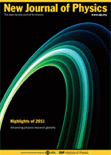
NEW JOURNAL OF PHYSICS
Empowering researchers with open-access knowledge.NEW JOURNAL OF PHYSICS, published by IOP Publishing Ltd, is a prestigious open-access journal that has been at the forefront of the physics community since its inception in 1998. With an impact factor that places it in the Q1 category of Physics and Astronomy (miscellaneous) and a commendable ranking of #49 out of 243 in the general physics and astronomy category according to Scopus, this journal is recognized for its significant contribution to advancing research in the field. The journal caters to a broad scope of topics, providing a platform for the dissemination of cutting-edge research findings and innovative theoretical explorations. Operating from the United Kingdom, it offers a truly international perspective, making its contents accessible and impactful to a global audience. With robust open-access options, the NEW JOURNAL OF PHYSICS ensures that research findings are freely available, promoting collaboration and knowledge sharing among researchers, professionals, and students alike. This commitment to accessibility, combined with its high-quality content, makes it an essential resource for anyone engaged in the physics community.
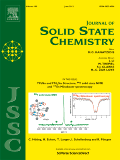
JOURNAL OF SOLID STATE CHEMISTRY
Connecting Researchers to Cutting-edge ChemistryWelcome to the Journal of Solid State Chemistry, a prestigious publication that has been at the forefront of solid state chemistry research since its inception in 1969. Published by Academic Press Inc. Elsevier Science in the United States, this journal offers a rigorous platform for the dissemination of high-impact research articles and reviews in a wide array of categories such as Ceramics and Composites, Condensed Matter Physics, and Materials Chemistry, among others. With an impressive Q2 ranking across multiple categories in 2023 and a commendable performance in Scopus rankings—including a top position in Inorganic Chemistry—this journal serves as an essential resource for researchers, professionals, and students eager to advance their understanding in solid state phenomena. Although it does not currently offer Open Access options, the breadth and quality of the published research ensure significant visibility and scholarly impact. As we continue to converge into 2024, we invite you to explore groundbreaking studies that push the boundaries of knowledge in solid state chemistry.
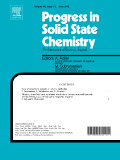
PROGRESS IN SOLID STATE CHEMISTRY
Advancing the Frontiers of Solid State ChemistryPROGRESS IN SOLID STATE CHEMISTRY, published by PERGAMON-ELSEVIER SCIENCE LTD, serves as a pivotal platform for disseminating cutting-edge research and advancements in the field of solid state chemistry. With an impressive impact factor and a respected status, this journal consistently ranks in the Q1 category across multiple disciplines, including Condensed Matter Physics, Materials Science, and Physical and Theoretical Chemistry. Following a rigorous peer-review process, it features articles that explore theoretical frameworks and experimental findings, thereby fostering innovation and collaboration among researchers and professionals. Although it does not adopt an open access model, its substantial reach and high Scopus rankings—19th in Condensed Matter Physics, 14th in Physical and Theoretical Chemistry, and 48th in General Materials Science—underscore its influence in shaping the future of materials research. Established in 1964, the journal continues to contribute significantly to the academic community, bridging the gap between theory and practical application in solid state materials.

ACTA PHYSICA POLONICA A
Advancing the Frontiers of Physics and AstronomyACTA PHYSICA POLONICA A is a distinguished peer-reviewed journal published by the Polish Academy of Sciences Institute of Physics, offering a platform for disseminating cutting-edge research in the field of physics and astronomy. With an ISSN of 0587-4246 and an E-ISSN of 1898-794X, this journal has been a staple for scholars since its inception, converging its publication years from 1996 to 2024. Despite its current Q4 classification in the Physics and Astronomy (miscellaneous) category, ACTA PHYSICA POLONICA A provides valuable insights and breakthroughs addressing various aspects of general physics. Researchers, professionals, and students will find a wealth of knowledge within its pages, even as it operates in an evolving academic landscape. While subscription options exist, the journal aims to foster collaboration and knowledge exchange in the physics community, making it a vital resource for those seeking to stay at the forefront of research advancements.
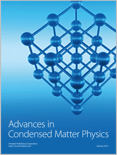
Advances in Condensed Matter Physics
Accelerating Insights in Nanotechnology and MoreAdvances in Condensed Matter Physics is a distinguished journal published by HINDAWI LTD, dedicated to the rapid dissemination of high-quality research in the field of condensed matter physics. Since its inception in 2008, this Open Access journal has facilitated wide accessibility to cutting-edge findings and theoretical advancements, with aims to foster collaboration and innovation within the scientific community. With an ISSN of 1687-8108 and an E-ISSN of 1687-8124, the journal covers an extensive range of topics, from quantum materials to nanotechnology, ensuring relevance and engagement across various sub-disciplines. As a testament to its impact in the field, it is ranked in the Q3 category for 2023 within Scopus and holds a position in the 34th percentile for physics and astronomy. The journal's continuous commitment to publishing significant exploratory research until 2024 makes it a pivotal resource for researchers, professionals, and students eager to stay on the leading edge of condensed matter physics advancements.
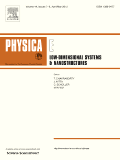
PHYSICA E-LOW-DIMENSIONAL SYSTEMS & NANOSTRUCTURES
Driving discoveries in the heart of material science.PHYSICA E-LOW-DIMENSIONAL SYSTEMS & NANOSTRUCTURES, published by ELSEVIER, is a premier journal dedicated to advancing the field of condensed matter and nanoscience, focusing on the innovative properties and applications of low-dimensional systems. With an esteemed Q2 ranking in multiple categories including Atomic and Molecular Physics, Condensed Matter Physics, and Nanoscience for 2023, this journal serves as a vital platform for researchers and professionals aiming to disseminate and discuss cutting-edge research. Established in 1974 and converging its focus from 1997 onwards, PHYSICA E captures the evolving landscape of material science, making it a crucial resource for anyone invested in the dynamics of electronic, optical, and magnetic materials. Although the journal operates on a subscription basis, its broad accessibility and significant placement within Scopus rankings—such as being in the 83rd percentile for Condensed Matter Physics—underscore its importance within the academic community. Researchers and students alike will find this journal a cornerstone for fostering knowledge and collaboration in the fields of nanotechnology and low-dimensional physics.

Computational Condensed Matter
Empowering Researchers with High-Quality, Peer-Reviewed InsightsComputational Condensed Matter, a reputable journal published by Elsevier, serves as a critical platform for advancing the understanding of condensed matter physics and related fields. Since its inception in 2014, the journal has become a pivotal resource for researchers and professionals dedicated to exploring electronic, optical, and magnetic materials, as well as materials chemistry and general materials science. With its current standing in the Q3 quartile across multiple categories in 2023, it ranks within the 60th percentile for Materials Science (miscellaneous) and the 54th percentile for Condensed Matter Physics in Scopus, reflecting its growing influence and relevance in the scientific community. The journal aims to publish high-quality, peer-reviewed articles that can foster innovation and collaboration in computational methods applied to condensed matter systems. Researchers interested in cutting-edge insights and methodologies will find Computational Condensed Matter to be an invaluable addition to their academic resources. For those seeking to contribute to or stay informed about the latest advancements in the field, this journal is a must-read.
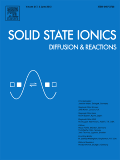
SOLID STATE IONICS
Elevating the science of ionic conduction.SOLID STATE IONICS, published by Elsevier, is a prestigious academic journal dedicated to the field of solid state ionics. Since its inception in 1979, the journal has steadily contributed to the advancement of knowledge regarding ionic conduction in solid materials, which is paramount in a multitude of applications, from energy storage systems to sensor technology. As evidenced by its strong ranking in 2023—positioned in the Q2 quartile across Chemistry, Condensed Matter Physics, and Materials Science—SOLID STATE IONICS is recognized as a vital resource for researchers, professionals, and students alike, providing high-quality peer-reviewed articles that foster scientific collaboration and innovation. Its ISSN is 0167-2738 and E-ISSN is 1872-7689, with an ongoing publication schedule aimed at featuring cutting-edge research through 2024. As an essential conduit for the dissemination of important findings in the field, researchers seeking to publish their work or explore new frontiers in solid state ionics will find this journal an invaluable resource.
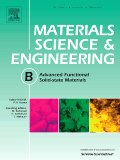
Materials Science and Engineering B-Advanced Functional Solid-State Materials
Transforming Ideas into Innovative Materials SolutionsMaterials Science and Engineering B: Advanced Functional Solid-State Materials, published by Elsevier, stands as a pivotal platform in the realm of materials science, focusing on the development and characterization of advanced solid-state materials. With an ISSN of 0921-5107 and E-ISSN of 1873-4944, this journal operates out of the United Kingdom and addresses critical issues in condensed matter physics, mechanical engineering, and mechanics of materials. Its consistent recognition, evident in its Q2 quartile rankings across multiple engineering and physics categories and a respectable scope of convergence from 1988 to 2024, signifies its substantial contribution to the field. Researchers and professionals seeking a venue for cutting-edge work will appreciate the journal's commitment to advancing knowledge in functional materials, with its open access features ensuring that innovative findings are readily accessible. Join a community of leading scholars engaging with the latest advancements, shaping the future of materials science.
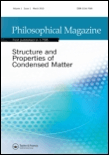
PHILOSOPHICAL MAGAZINE
Cultivating Knowledge in Condensed Matter SystemsPHILOSOPHICAL MAGAZINE, published by Taylor & Francis Ltd, is a distinguished journal that focuses on the field of Condensed Matter Physics. With an ISSN of 1478-6435 and an E-ISSN of 1478-6443, this journal serves as a vital platform for researchers and professionals seeking to disseminate and access cutting-edge research and developments in the field. Currently ranked in the Q3 category within its discipline according to the 2023 quartiles, and positioned at the 45th percentile in Scopus rankings, PHILOSOPHICAL MAGAZINE is recognized for its significant contributions to theoretical and experimental physics. The journal embraces open access options, enhancing its reach and accessibility to a global audience. With coverage spanning from 2003 through 2024, it remains a cornerstone for scholars and students who aim to deepen their understanding of the complexities within condensed matter systems. For anyone engaged in the physical sciences, PHILOSOPHICAL MAGAZINE offers invaluable insights and fosters an environment of rigorous academic inquiry.